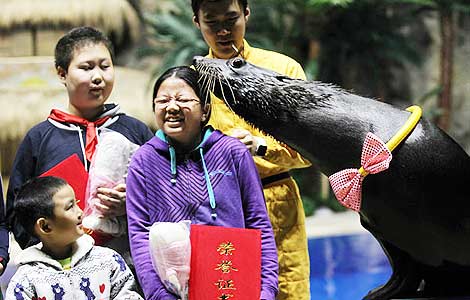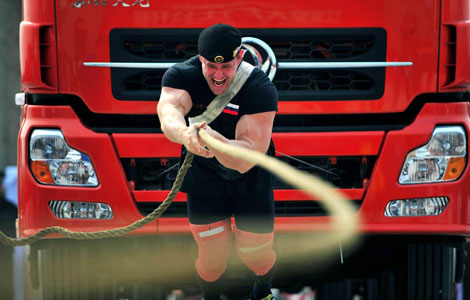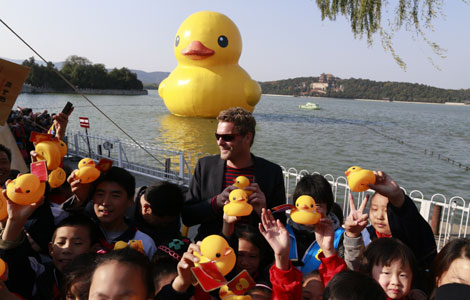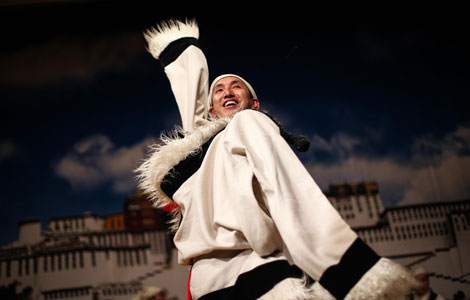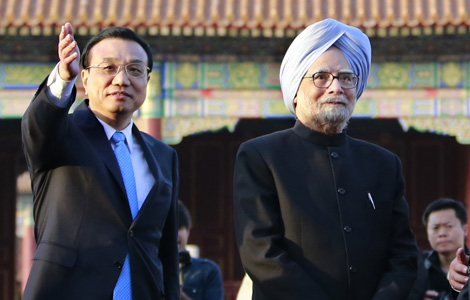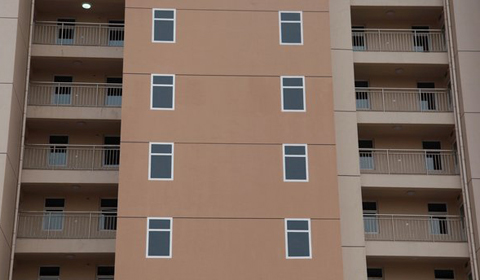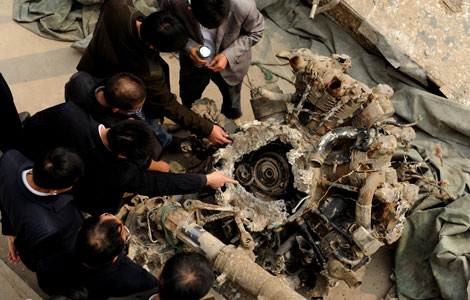

 |
|
Meiji Co, the well-known Japanese confectioner and dairy product maker, stops selling baby formula in China because of intensified competition. [Photo/CFP] |
Meiji Co, the well-known Japanese confectioner and dairy product maker, will stop selling baby formula in China because of intensified competition.
The company issued a statement on its website on Thursday saying that it will stop selling four different kinds of baby formula in China because the cost of importing Australian milk has been rising year-on-year which has seriously affected its income. The four kinds of baby formula are all the dairy products Meiji has been selling in China. It will stop selling these products once all the stock has been exhausted.
Meiji entered China in 1997. It was banned in the nation because of foot-and-mouth disease in 2010. Market analysis said its sales in China dropped by at least 90 percent after the 2011 earthquake and tsunami in northeast Japan.
Wang Dingmian, former deputy director of Guangzhou Dairy Industry Management Office, said that Meiji's retreat from the Chinese market resulted partly from recent tensions in China-Japan relations. It also can be attributed to the new nuclear leak at Fukushima.
Mothers have expressed concern over the safety of Japanese milk powder.
Zhou Yanrong, a private piano teacher in Shanghai, stopped buying Japanese milk powder for her 21-month-old son after she learned the latest news about the nuclear leak in Fukushima. Meiji and ICREO used to be the brands she chose the most often.
"Although the Japanese government said the nuclear leak is still within the security boundary, I cannot take that risk. Now I have stopped buying Japanese milk powder and turned to Aptamil from Germany," she said.
Wang from the Guangzhou Dairy Industry Management Office also added that Meiji's performance in the Chinese market has been far from satisfactory. Instead of taking up the lion's share, Meiji failed to make it into one of the top 10 best sellers of milk formulas in China between 2010 and 2013, according to statistics provided by the market research firm Euromonitor International.
Mead Johnson Nutrition Co from the United States, so far has the largest market share with 1.1 percent of the Chinese milk formula market in 2013, according to Euromonitor. Nestle SA of Switzerland ranks second with 10.6 percent, and Danone Groupe from France ranks third with 10.3 percent.
Domestic brands such as Hangzhou Beingmate Group Co Ltd and Yashili International Holdings Ltd have also remained strong in China's milk formula market.
Therefore, Meiji's departure from the Chinese market will have little impact because "it takes up a small market share and has targeted only a small group of Chinese customers", said Song Liang, an industry analyst in Beijing.
The Chinese government has been tightening its regulation of the Chinese milk formula market in recent years. Six dairy companies including Mead Johnson and Danone were fined a combined 670 million yuan ($110 million) in August this year for price-fixing, a record high penalty for violating anti-monopoly laws.
Wang Zhuoqiong in Beijing contributed to this story.
shijing@chinadaily.com.cn
